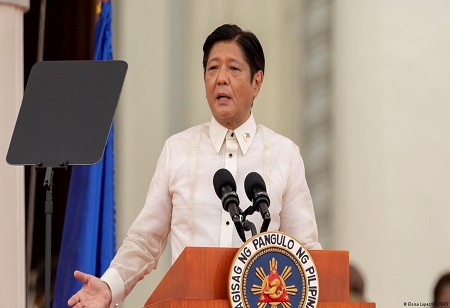
Marcos Sees Philippine economy rising Fastest in Asia at 7%

 According to President Ferdinand Marcos Jr., the Philippines' economic growth will probably remain constant at around 7% this year, with the country expected to record the fastest performance in Asia despite a darker global outlook.
According to President Ferdinand Marcos Jr., the Philippines' economic growth will probably remain constant at around 7% this year, with the country expected to record the fastest performance in Asia despite a darker global outlook.
“There is so much space, room to grow, in the sense that we are starting very many new things now,” Marcos said in an interview with Bloomberg Television’s Haslinda Amin on the sidelines of the World Economic Forum in Davos, Switzerland.
As per him, the economy has been "quite solid" and unemployment rates are going down. The domestic economy, according to Marcos, "will be able to manage at least 7% growth for last year" and will rise at a comparable rate in 2023.
In his first six months as the head of the nation, Marcos has had to deal with a number of economic difficulties, such as constrained state finances and growing borrowing prices. Inflation has reached a 14-year high due to rising prices for necessities like sugar and onions, and Marcos, who also heads the agriculture department, has promised to increase farm productivity in order to reduce imports and prices.
Marcos, like most leaders in Southeast Asia, has worked to strike a balance between US and Chinese interests. He met with President Xi Jinping earlier this month and agreed to pursue discussions about South China Sea energy exploration. He has attempted to collaborate with China in infrastructure and agriculture.
Manila has recently expressed "grave concern" over Chinese vessels massing off its western coast, escalating tensions between Manila and Beijing in the disputed waters. According to a December article by Bloomberg News, China is constructing multiple uninhabited land features in the South China Sea.

